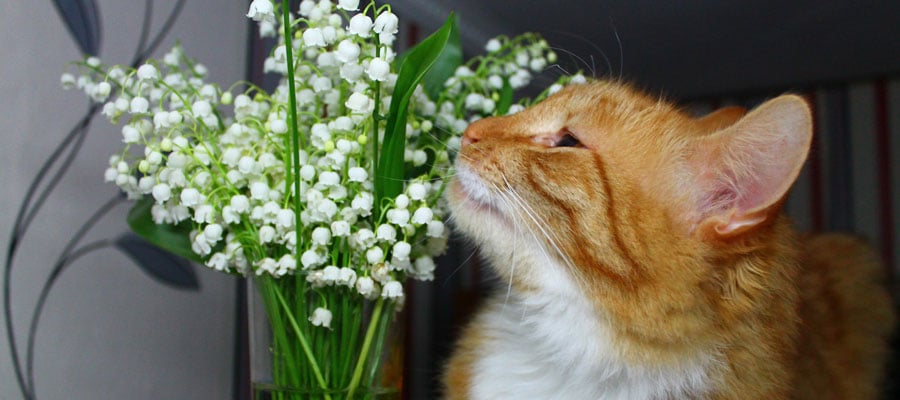As a loving pet owner, you've probably become aware of the various things in your environment that could be harmful to your furry friend. You may keep a watchful eye to keep him or her inside to stay safe, keep dangerous products away, and feed only the best kind of food. But even with all of these precautions, you could have pet killers lurking in your backyard where Mr. FuzzyPaws plays. Did you know that many varieties of lilies are poisonous to dogs and cats? Read on to learn the warning signs, how to spot a poisonous lily, and how to keep your cat safe.
Keeping Your Cat Safe From Lilies
There are lilies out there that are benign to pets in general. But there are also varieties that could cause vomiting, lethargy, dehydration, seizures, and even death. Every dog and cat owner should know the difference between a harmless lily and one that could be lethal.
Lilies that don't pose a threat to cats include:
- Peace
- Peruvian
- Calla
It's important to note that these benign lilies can still irritate your pet if ingested. Insoluble oxalate crystals in these lilies could cause your dog or cat to drool, paw at his mouth, foam at the mouth, or vomit because of tissue irritation. On the spectrum of harm, however, this is far less than the lilies that are poisonous to cats.
Potentially fatal lilies include:
- Lilium species and Hemerocallis species
- Tiger
- Day
- Asiatic hybrid
- Easter
- Japanese Show
- Rubrum
- Stargazer
- Red
- Western
- Wood
- Lily of the Valley
All of these are "true" lilies, meaning that they have Lilium or Hemerocallis in their Latin names. Even small ingestion of these lilies could cause toxic shock in your pet—even a small drink of the water a lily was in or smelling the pollen and then licking their nose (more so with cats and smaller dogs).
How to Prevent Lily Poisoning
For pet owners, we recommend no lilies in the house or on the property. Better safe than sorry in all circumstances. If you do have lilies in the house, keep them on a surface that is well out of reach and discard water immediately after use. Put lilies in a tall, thin vase so if your pet does try to drink the water, he or she likely won't be able to reach it.
Signs to Watch Out For
If you believe that your cat or dog has ingested any part of a lily or has drunk water from a vase of lilies, call your vet immediately. A veterinarian can perform a full examination and keep your pet from the scary effects of poisoning.
Call your vet right away if your cat exhibits any of these warning signs.
- Lack of appetite
- Lethargy
- Hiding
- Vomiting
- Diarrhea
- Halitosis (bad breath)
- Dehydration
- Uncontrolled urination
- Seizures
The final result of uncontrolled lily poisoning can be deadly. The early stages of lily poisoning can be stopped through decontamination (induced vomiting). Your vet may decide to give your pet intravenous fluids, monitor kidney function, and perform various tests to keep them healthy and ensure a full recovery. React quickly; measures taken in the first 18 hours are the most likely to result in a good outcome for your cat.
As always, if you have any questions or concerns about your pet's health, don't hesitate to contact us.
